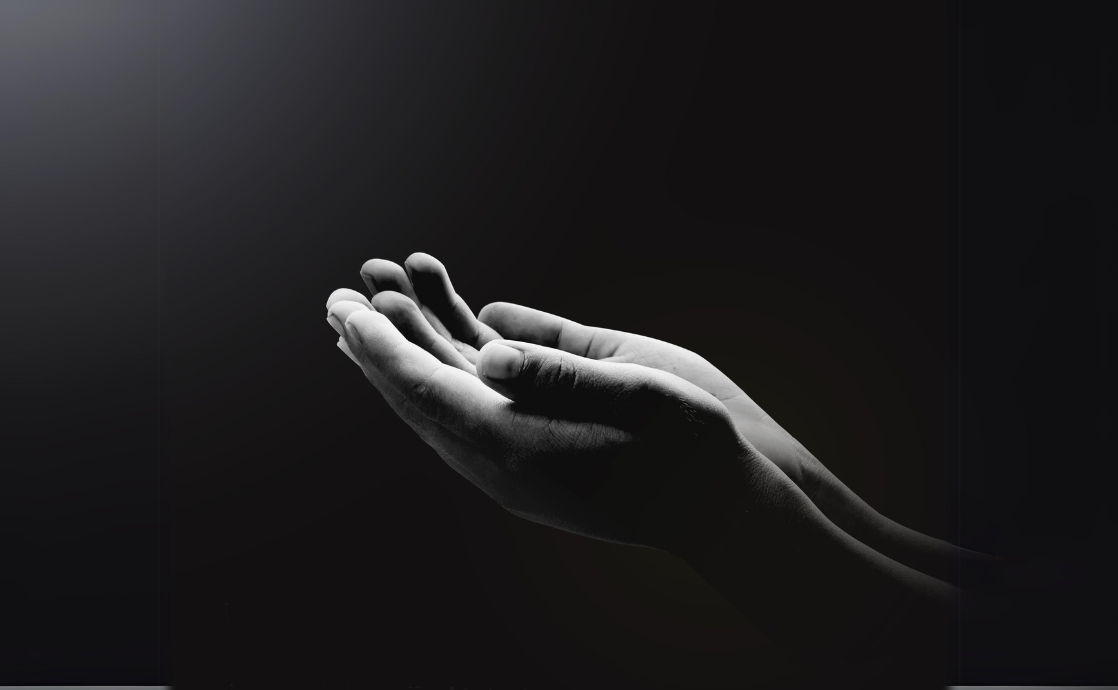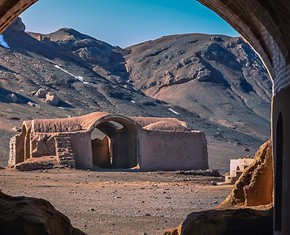The views expressed in our content reflect individual perspectives and do not represent the authoritative views of the Baha'i Faith.
Humans and religion seem to go hand in hand. Historians and archeologists have established that as far back as 50,000 years ago most human bands and tribes in the world had some form of spiritual practice.
Somehow, accepting a spiritual power as greater and wiser than human power clearly demonstrates a unifying effect on a group of people living intimately together through many generations.
On a practical level, this kind of shared spirituality produces a moral code to live by and distinguishes good behavior from bad behavior.
Who drew up these moral and spiritual codes, during our known human history? Surprisingly — from what research can establish — they weren’t so much the politicians, power players, and warlords. Instead, they were usually special individuals recognized for their spiritual qualities, like druids, shamans, healers, artists, and prophets.
People with vision, who could inspire or help or cure other members of the tribe, who had prophetic dreams, could communicate with the spirits of the living and the dead, or had other special talents in their hearts and souls, usually became the ideal candidates for the spiritual leadership their communities needed.
RELATED: The Purpose of Religion, Now and Forever
Along those lines, I once was a pupil of a Peruvian shaman named Hernan Quillahuaman. He still lives a large part of his life, like his Incan ancestors before him, as a spiritual advisor to his people, as shamans have always been properly trained and initiated in their spiritual path. His mother was also a shaman in his Inca lineage of healers. He had quite a few brothers and sisters, but none of them had the gift, according to his mother — only Hernan.
I came to know Hernan, who I usually called Don Hernan to honor his status, as an intelligent, gentle, and intuitive soul, a man eager to share his knowledge with genuine seekers. In his village, few people knew of his status, although when someone was seriously ill, he would usually be called in to perform his healing in secret, because Inca practices are still frowned upon by the Catholic church.
From Don Hernan, I learned many things, and I won’t go into them here. I just wanted to introduce him to you as a living example of a local spiritual leader, of the type that has been considered normal and adequate throughout a large part of human history — gentle yet powerful, caring for his community with both heart and mind.
This brings us back to the question: what’s the true purpose of religion? Is it the creation of a moral and social code? Is it to express our innate spiritual and religious feelings in accepted ways? Is it perhaps a path for personal and spiritual development for every believer, like a school?
Baha’u’llah, the prophet and founder of the Baha’i Faith, said: “Religion is verily the chief instrument for the establishment of order in the world and of tranquility amongst its peoples.”
This means that the true purpose of religion, according to Baha’u’llah, is not very complicated — its goal is simply to establish order and tranquility in the world. That goal seems in line with small communities being led by gentle shamans like Don Hernan. Who wouldn’t want a peaceful and well-functioning existence?
Can Religion Bring Peace?
This lofty goal of establishing order and tranquility seems too good to ever come true, considering how many wars have been waged in the name of religion.
How can religion be the bringer of peace, if it’s also the bringer of war?
Religions have historically brought societal division, discrimination, and hatred, which has fueled atheism on an unprecedented scale. Religions are losing their appeal faster than ever in certain places like my home country, the Netherlands, which used to be predominantly Christian. Today, even the word “religion” is becoming more and more taboo. To say you believe in something is acceptable for the Dutch — just don’t give that something a name, and don’t become a follower of any organized religion. The Dutch believe that religion will only lead to more trouble and confusion.
So you might not expect that the Baha’i teachings warn us about clinging to religions that have moved away from their original intent of love and unity:
Baha’u’llah says that religion must be conducive to love and unity. If it proves to be the source of hatred and enmity, its absence is preferable; for the will and law of God is love, and love is the bond between human hearts. Religion is the light of the world. If it is made the cause of darkness through human misunderstanding and ignorance, it would be better to do without it.
Baha’u’llah’s son and successor, Abdu’l-Baha, in a series of talks he gave in Paris in 1911, repeated this Baha’i principle on several occasions:
Religion should unite all hearts and cause wars and disputes to vanish from the face of the earth; it should give birth to spirituality, and bring light and life to every soul. If religion becomes a cause of dislike, hatred and division, it would be better to be without it … Any religion which is not a cause of love and unity is no religion.
Now, our quintessential question becomes more interesting than ever because if the true purpose of religion is to establish order and tranquility, but it fails to bring this about in a loving and unifying way, the Baha’i teachings say that we are better off without religion. Have you ever heard a deeply religious person say something like this? It stunned me the first time I read it.
Here’s another analogy I like to use when discussing the purpose of religion. In my book Seek the Unseekable I freely explore my own take on the meaning of life and how to find out if God exists. Religions, I suggest, must be flying schools, teaching our souls how to fly. Too many religions and churches that I have investigated in my life gave me the feeling that I would be robbed of my freedom. They would offer me a golden cage, but the cage door would be gently shut, and if I left it, there would be unloving consequences.
RELATED: Who Creates Religion — and Why Are There So Many?
Tell me this: how can I learn how to fly when I’m in a cage?
For me, it has always been clear that if a belief system doesn’t allow me to think for myself and use my own eyes, brains, experiences, and feelings, it is not going to work for me. For almost 30 years, I felt better off without religion altogether. Although, I have to admit, that during these decades I missed something hard to describe. It was a nagging feeling, sometimes even painful. Knowing on a soul level that a Creator exists, after a profound mystical experience as a teenager, but having no tools or practices to express this deep love, felt like I was trying to fly with just one wing.
Then I discovered the Baha’i Faith, and learned about its first principle — the independent investigation of the truth. Abdu’l-Baha, in a speech he gave in Washington, D.C. in 1912, summarized that revolutionary Baha’i teaching:
Reality or truth is one, yet there are many religious beliefs, denominations, creeds and differing opinions in the world today. Why should these differences exist? Because they do not investigate and examine the fundamental unity, which is one and unchangeable. If they seek reality itself, they will agree and be united; for reality is indivisible and not multiple. It is evident, therefore, that there is nothing of greater importance to mankind than the investigation of truth.
I had found my spiritual home.
















Comments
Sign in or create an account
Continue with Googleor